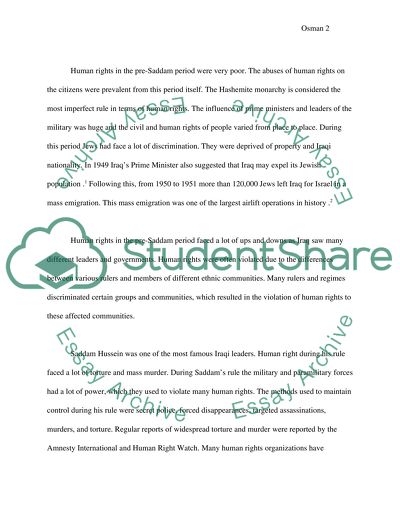Cite this document
(“Legal Issue Paper HUMAN RIGHTS IN IRAQ Essay Example | Topics and Well Written Essays - 1500 words”, n.d.)
Legal Issue Paper HUMAN RIGHTS IN IRAQ Essay Example | Topics and Well Written Essays - 1500 words. Retrieved from https://studentshare.org/miscellaneous/1533276-legal-issue-paper-human-rights-in-iraq
Legal Issue Paper HUMAN RIGHTS IN IRAQ Essay Example | Topics and Well Written Essays - 1500 words. Retrieved from https://studentshare.org/miscellaneous/1533276-legal-issue-paper-human-rights-in-iraq
(Legal Issue Paper HUMAN RIGHTS IN IRAQ Essay Example | Topics and Well Written Essays - 1500 Words)
Legal Issue Paper HUMAN RIGHTS IN IRAQ Essay Example | Topics and Well Written Essays - 1500 Words. https://studentshare.org/miscellaneous/1533276-legal-issue-paper-human-rights-in-iraq.
Legal Issue Paper HUMAN RIGHTS IN IRAQ Essay Example | Topics and Well Written Essays - 1500 Words. https://studentshare.org/miscellaneous/1533276-legal-issue-paper-human-rights-in-iraq.
“Legal Issue Paper HUMAN RIGHTS IN IRAQ Essay Example | Topics and Well Written Essays - 1500 Words”, n.d. https://studentshare.org/miscellaneous/1533276-legal-issue-paper-human-rights-in-iraq.


